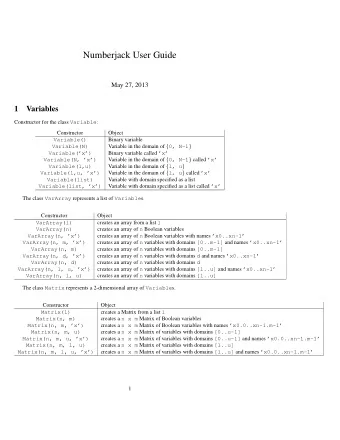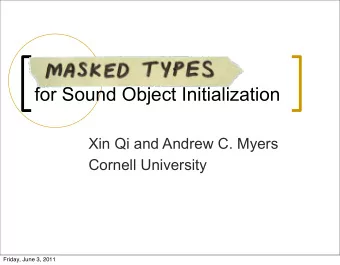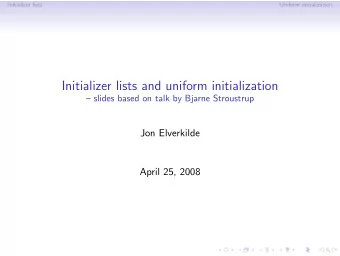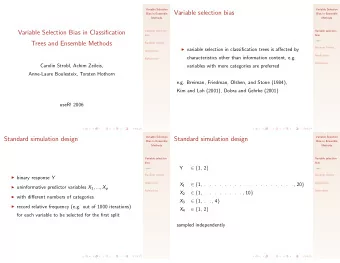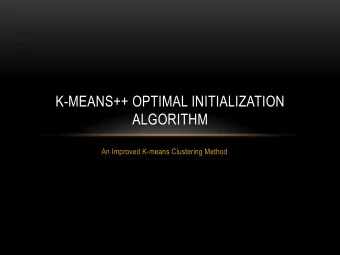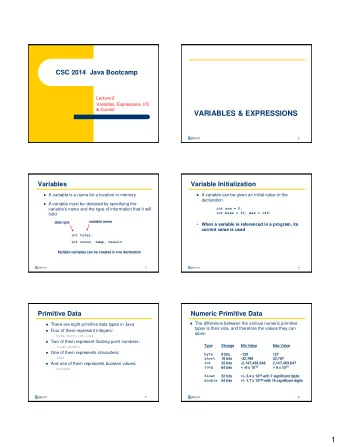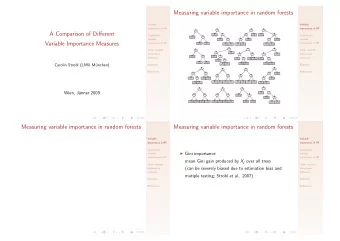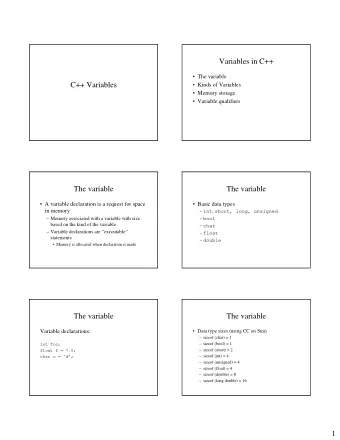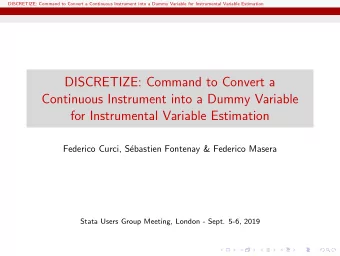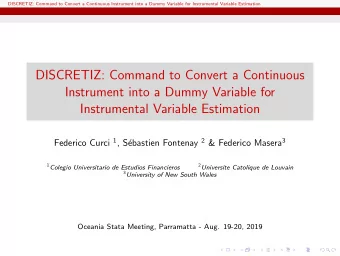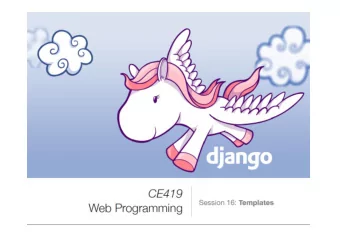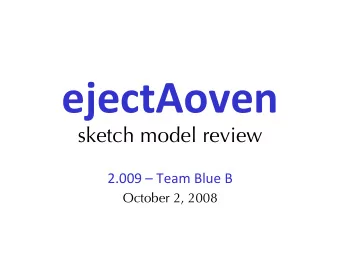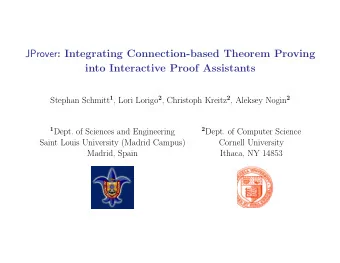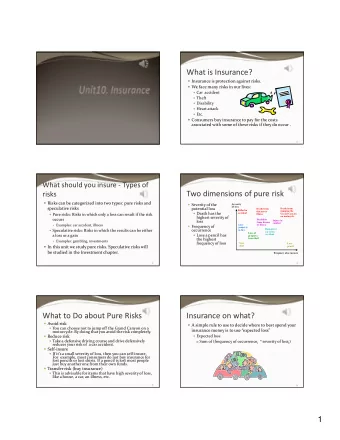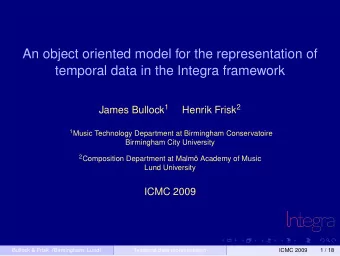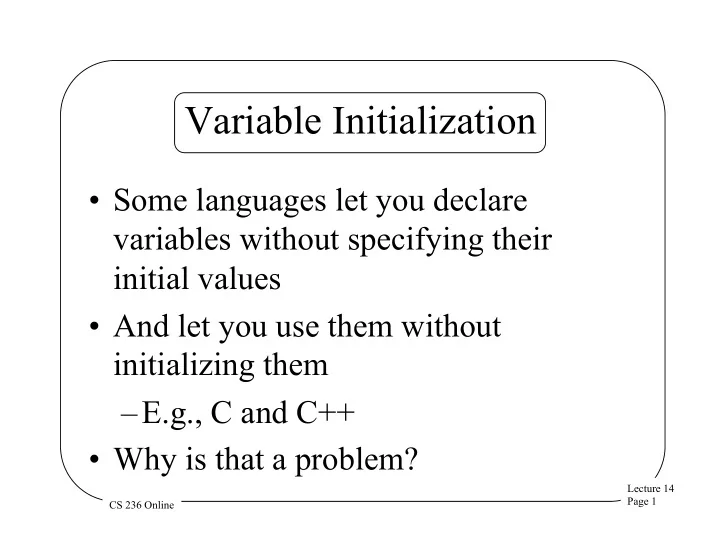
Variable Initialization Some languages let you declare variables - PowerPoint PPT Presentation
Variable Initialization Some languages let you declare variables without specifying their initial values And let you use them without initializing them E.g., C and C++ Why is that a problem? Lecture 14 Page 1 CS 236 Online
Variable Initialization • Some languages let you declare variables without specifying their initial values • And let you use them without initializing them – E.g., C and C++ • Why is that a problem? Lecture 14 Page 1 CS 236 Online
Variable Initialization • Some languages let you declare variables without specifying their initial values • And let you use them without initializing them – E.g., C and C++ • Why is that a problem? Lecture 14 Page 2 CS 236 Online
A Little Example main() { bar() { foo(); int aa; bar(); int bb; } int cc; foo() printf("aa = %d\n",aa); { printf("bb = %d\n",bb); int a; printf("cc = %d\n",cc); int b; } int c; a = 11; b = 12; c = 13; } Lecture 14 Page 3 CS 236 Online
What’s the Output? lever.cs.ucla.edu[9]./a.out aa = 11 bb = 12 cc = 13 • Perhaps not exactly what you might want Lecture 14 Page 4 CS 236 Online
Why Is This Dangerous? • Values from one function “leak” into another function • If attacker can influence the values in the first function, • Maybe he can alter the behavior of the second one Lecture 14 Page 5 CS 236 Online
Variable Cleanup • Often, programs reuse a buffer or other memory area • If old data lives in this area, might not be properly cleaned up • And then can be treated as something other than what it really was • E.g., bug in Microsoft TCP/IP stack – Old packet data treated as a function pointer Lecture 14 Page 6 CS 236 Online
Use-After-Free Bugs • Increasingly popular security bug type • Related to memory management – Memory structures are dynamically allocated on the heap • Either explicitly or implicitly freed – Depending on language and context • In some cases, pointers can be used to access freed memory – E.g., in C and C++ Lecture 14 Page 7 CS 236 Online
An Example Use-After-Free Bug • In OpenSSL (from 2009) . . . frag->fragment,frag->msg_header.frag_len); } dtls1_hm_fragment_free(frag); dtls1_hm_fragment_free(frag); pitem_free(item); if (al==0) { *ok = 1; return frag->msg_header.frag_len; return frag->msg_header.frag_len } Lecture 14 Page 8 CS 236 Online
What Was the Effect? • Typically, crashing the program • But it would depend • When combined with other vulnerabilities, could be worse • E.g., arbitrary code execution • Often making use of poor error handling code Lecture 14 Page 9 CS 236 Online
Recent Examples of Use-After- Free Bugs • Internet Explorer (2014, several in 2012-2013) • Adobe Reader and Acrobat (2014) • Mozilla, multiple products (2012) • Google Chrome (2012) Lecture 14 Page 10 CS 236 Online
Some Other Problem Areas • Handling of data structures – Indexing error in DAEMON Tools • Arithmetic issues – Integer overflow in Sophos antivirus – Signedness error in XnView • Errors in flow control – Samba error that causes loop to use wrong structure • Off-by-one errors – Denial of service flaw in Clam AV Lecture 14 Page 11 CS 236 Online
Yet More Problem Areas • Null pointer dereferencing – Xarrow SCADA system denial of service • Side effects • Punctuation errors • Typos and cut-and-paste errors – Recent iOS vulnerability based on inadvertent duplication of a goto statement • There are many others Lecture 14 Page 12 CS 236 Online
Why Should You Care? • A lot of this stuff is kind of exotic • Might seem unlikely it can be exploited • Sounds like it would be hard to exploit without source code access • Many examples of these bugs probably unexploitable Lecture 14 Page 13 CS 236 Online
So . . .? • Well, that’s what everyone thinks before they get screwed • “Nobody will find this bug” • “It’s too hard to figure out how to exploit this bug” • “It will get taken care of by someone else” – Code auditors – Testers – Firewalls Lecture 14 Page 14 CS 236 Online
That’s What They Always Say • Before their system gets screwed • Attackers can be very clever – Maybe more clever than you • Attackers can work very hard – Maybe harder than you would • Attackers may not have the goals you predict Lecture 14 Page 15 CS 236 Online
But How to Balance Things? • You only have a certain amount of time to design and build code • Won’t secure coding cut into that time? • Maybe • But less if you develop code coding practices • If you avoid problematic things, you’ll tend to code more securely Lecture 14 Page 16 CS 236 Online
Some Good Coding Practices • Validate input • Be careful with failure conditions and return codes • Avoid dangerous constructs – Like C input functions that don’t specify amount of data • Keep it simple Lecture 14 Page 17 CS 236 Online
Recommend
More recommend
Explore More Topics
Stay informed with curated content and fresh updates.
